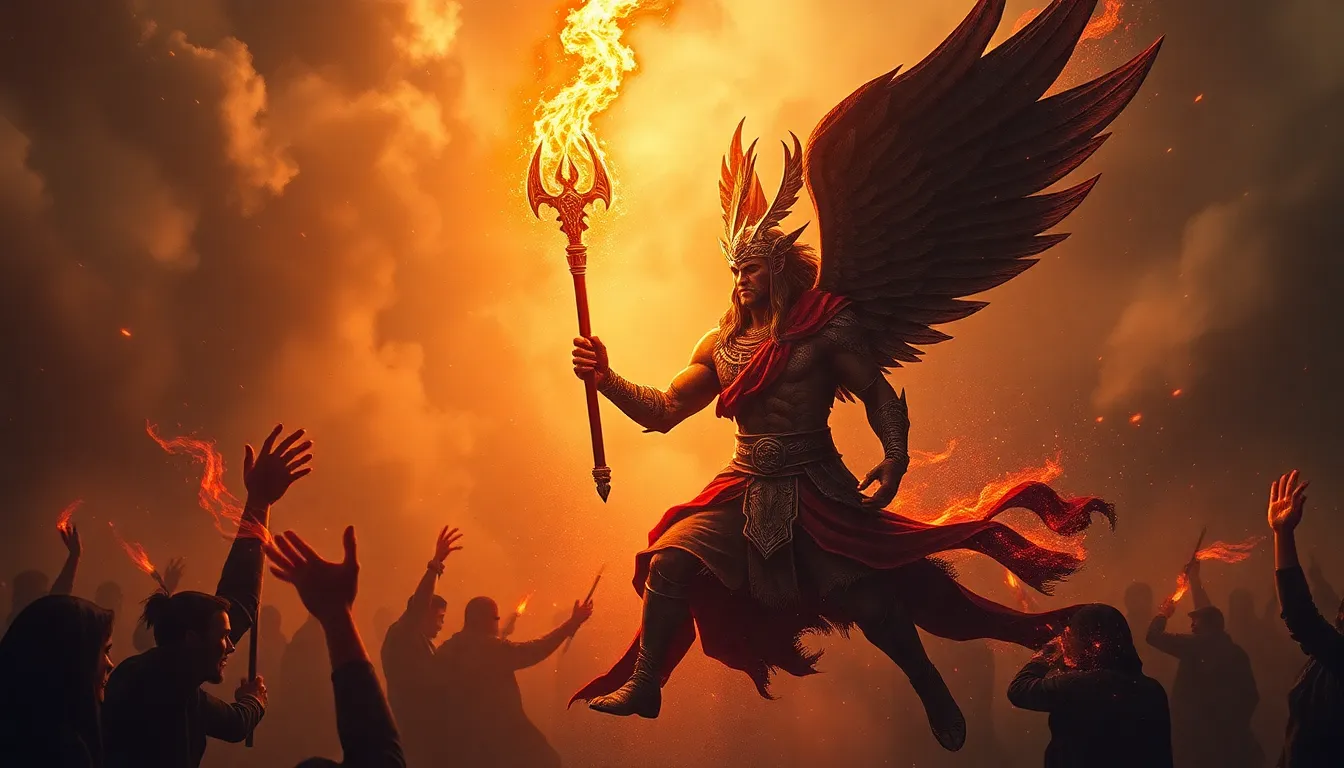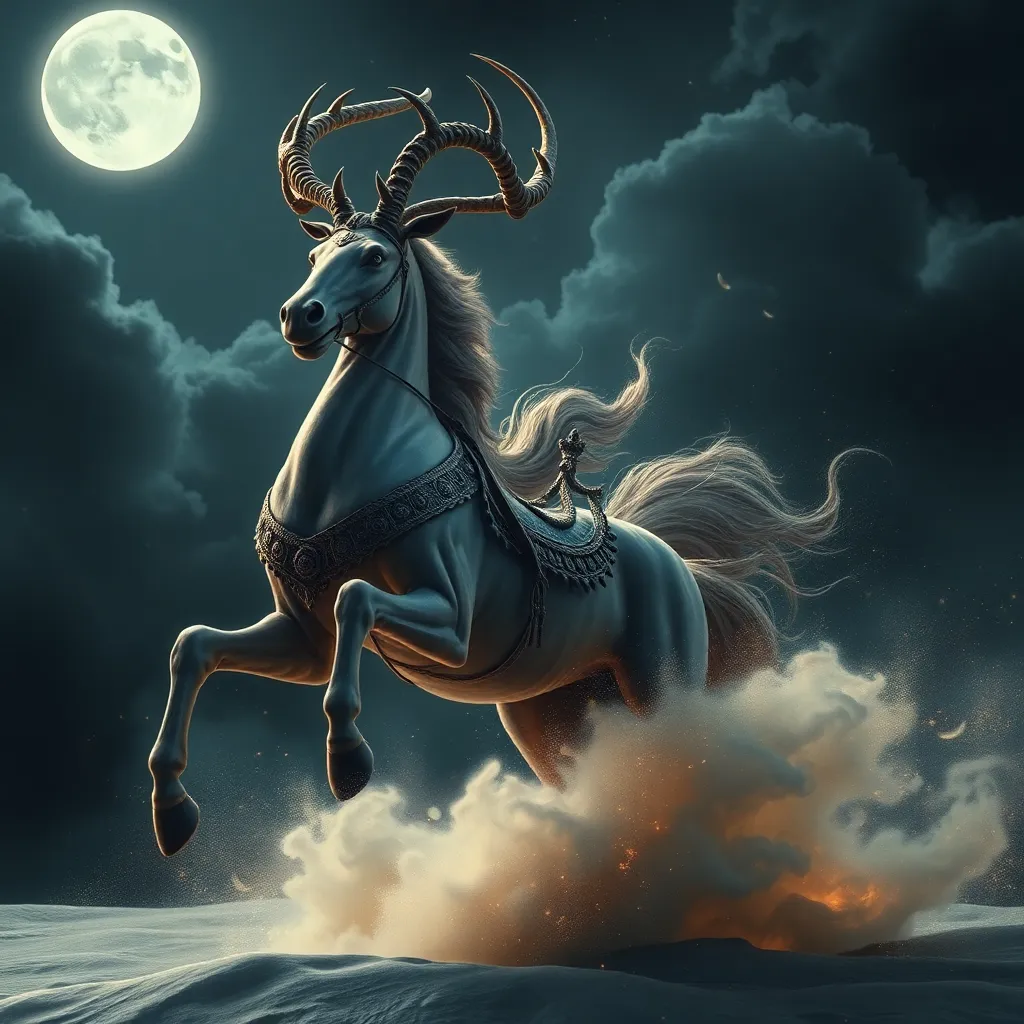The Birth of the Cosmos: Creation Myths from Around the World
Introduction: The Fascination with Creation Myths
Creation myths are fundamental stories that explain how the universe and humanity came into existence. They serve as cultural cornerstones, reflecting the values, beliefs, and experiences of the societies that tell them. Across the globe, diverse cultures have crafted rich narratives that encapsulate their understanding of creation, drawing from their unique environments and historical contexts.
This article aims to explore various creation myths from different cultures, highlighting their significance and the insights they provide into human nature and our place in the cosmos.
The Role of Creation Myths in Human Culture
Creation myths play crucial psychological and social roles in human cultures. They often provide:
- A framework for understanding existence and the universe.
- A source of moral guidance and cultural values.
- A means of explaining natural phenomena and human experiences.
These myths shape cultural identity and foster a sense of belonging among community members. For example, many indigenous tribes have rituals that stem from their creation stories, reinforcing their cultural heritage and communal ties through ceremonies and storytelling.
Western Perspectives: Judeo-Christian Creation Narratives
The Judeo-Christian creation narrative, primarily found in the Book of Genesis, describes God creating the world in six days and resting on the seventh. This account emphasizes the power and authority of a singular deity, shaping moral frameworks and societal norms in Western cultures.
In comparison, Greek mythology offers different creation accounts, such as the emergence of Gaia and Uranus, who personify the earth and sky. These myths often feature multiple gods and goddesses, reflecting a more polytheistic view of the universe.
The impact of these narratives is profound, influencing Western thought, philosophy, and even scientific inquiry, as they often intersect with discussions about existence and morality.
Eastern Perspectives: Hindu Creation Myths
In Hindu tradition, creation myths are rich and multifaceted. The Vedic creation hymns, particularly the Nasadiya Sukta, explore the emergence of the universe from a cosmic void. The concept of Brahman, the ultimate reality, plays a central role in Hindu cosmology, emphasizing the cyclical nature of creation and destruction.
Interestingly, Buddhist perspectives on creation differ. Buddhism generally refrains from definitive creation narratives, focusing instead on the cycle of rebirth and the impermanence of existence. This philosophical stance encourages a different understanding of life and the cosmos.
Indigenous Narratives: The Creation Stories of Native American Tribes
Native American tribes possess a rich tapestry of creation stories that vary widely among different cultures. For example:
- The Navajo creation story involves the emergence of the first people from the underworld, guided by spiritual beings.
- The Iroquois creation myth features Sky Woman, who falls from the sky and creates the earth on the back of a turtle.
These narratives often emphasize themes of nature, animals, and the interconnectedness of life, showcasing a deep respect for the environment. Oral tradition plays a critical role in preserving these myths, allowing them to be passed down through generations.
African Creation Myths: A Tapestry of Beliefs
African creation myths are as diverse as the continent itself, with each region offering its own unique stories. For example:
- The Yoruba creation myth involves the god Obatala molding humans from clay while the supreme god, Olodumare, breathes life into them.
- The Dogon people of Mali believe that the universe was created by the god Amma, who formed the earth and everything in it.
Ancestors and spirits often play significant roles in these narratives, reflecting the importance of lineage and heritage in African cultures. Moreover, mythology and daily life are intertwined, influencing rituals, agricultural practices, and social structures.
Oceanic Perspectives: Polynesian and Maori Creation Stories
Polynesian creation myths, such as those surrounding the god Tangaroa, illustrate the deep connection between these cultures and the sea. Tangaroa is often regarded as the creator of all life in the ocean, emphasizing the significance of maritime resources in Polynesian societies.
Similarly, Maori creation stories highlight the importance of the natural world. The Maori believe in the concept of Wairua, or spirit, which permeates all living things. These beliefs foster a profound respect for the environment and underline the relationship between people and the sea.
Asian Creation Myths: Chinese and Japanese Perspectives
Chinese creation myths, such as the stories of Pangu and Nuwa, reveal a rich cosmological framework. Pangu, a primordial giant, is said to have separated the earth and sky, while Nuwa is credited with creating humanity from yellow earth and repairing the sky after a catastrophe.
In Japan, the Shinto creation story tells of the deities Izanagi and Izanami, who created the islands of Japan and various kami (spirits). This narrative emphasizes harmony with nature and the sacredness of the land, influencing Japanese culture, art, and philosophy.
Modern Interpretations: The Influence of Science on Creation Myths
In contemporary society, there is an ongoing dialogue between scientific cosmology and traditional creation stories. While scientific narratives, such as the Big Bang theory, provide empirical explanations of the universe’s origins, many people still find value in the symbolic meanings of creation myths.
As cultures evolve, modern interpretations of these myths are emerging, incorporating scientific insights while retaining their spiritual and philosophical significance. This interplay between ancient narratives and modern understanding enriches our appreciation of both science and mythology.
Conclusion
Creation myths are a testament to humanity’s quest to understand our existence and the universe. They provide insight into diverse cultures, reflecting the values and beliefs that shape human experience. By exploring these narratives, we gain a deeper appreciation for the rich tapestry of human thought and the profound questions that connect us all.



